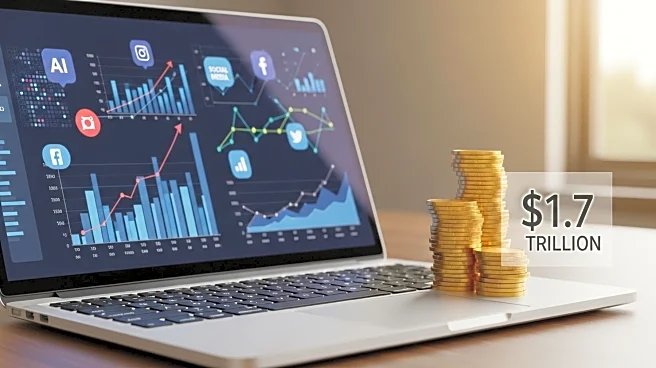What's Happening?
The U.S. Census Bureau reports that 29.8 million solopreneurs, businesses with no paid employees, are contributing $1.7 trillion to the U.S. economy, representing 6.8% of total economic activity. California leads in the number of solo businesses, while Florida ranks highest per capita. The trend is fueled by AI and social media platforms like TikTok, which enable entrepreneurs to start businesses quickly and connect with consumers. Experts suggest that AI lowers barriers to entry, allowing individuals to start side hustles with minimal resources. Social media platforms are also driving growth, particularly among female entrepreneurs under 30, who leverage creativity and community to build personal brands.
Why It's Important?
The rise of solopreneurs reflects a significant shift in the U.S. labor market, emphasizing flexibility, autonomy, and purpose over traditional career paths. This trend is reshaping the economy by fostering innovation and creativity, particularly in niche markets. It also highlights the role of technology in democratizing business opportunities, allowing individuals to compete with larger corporations. As AI and social media continue to evolve, they are likely to further empower solopreneurs, potentially leading to more diverse and inclusive economic growth. This shift could have long-term implications for workforce dynamics and economic policy.
What's Next?
The solopreneur trend is expected to continue growing, driven by advancements in AI and social media. As more individuals embrace entrepreneurship, there may be increased demand for supportive infrastructure, such as access to capital and business development resources. Policymakers and industry leaders may need to address challenges related to economic inequality and workforce development to ensure that the benefits of this trend are widely shared. Additionally, businesses and educational institutions may need to adapt to support the evolving needs of solopreneurs.









